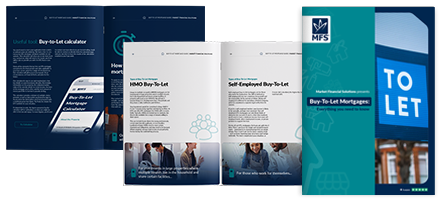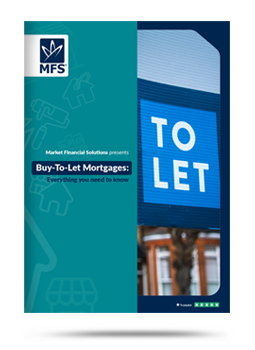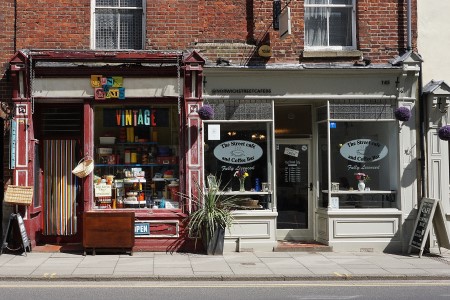
Written by Omkar Hushing
Deputy Chief Mortgage & Operations Officer – Front End
Market Financial Solutions are a bridging loan and buy-to-let mortgage provider and are not legal, financial, investment or tax advisers. This document is for informational purposes only and does not, and should not be considered, to constitute legal, financial, investment or tax advice or be relied upon by any person to make a legal, financial, investment or tax decision. Therefore, Investors are encouraged to seek appropriate professional advice. The information in this content is correct at time of writing.

Airbnb, the online platform which allows homeowners and landlords to rent out their homes for short periods of time, has gained rapid traction in recent years. Especially from travellers who want more affordable and home-like accommodation when on holiday.
As such, operating an Airbnb property has become an increasingly popular property investment opportunity as well. But, many of our landlord clients are unaware of how to finance an Airbnb property.
Therefore, this blog will outline everything landlords need to know about financing an Airbnb property. We’ll also provide some tips and best practices. But first, let’s define what an Airbnb investment is.
1. What Is an Airbnb Investment and How Does It Work?
Before we answer how to finance an Airbnb property, let’s just see what we are talking about. In short, a property can be considered an Airbnb investment when either part, or all the property is rented out via the Airbnb online platform.
Known as a peer-to-peer marketplace, the platform connects guests with landlords who can offer local short-term accommodation. Landlords simply need to create a host account, and list their property – including descriptions and images. Once it has been verified by Airbnb, they’ll just need to wait for guests to make a reservation.
On average, the length of an Airbnb booking is around 3 to 4 nights, but this can vary depending on the location or type of property. For the most part, this allows for a high turnover of guests throughout the year, as opposed to traditional property investments that are usually let out on longer-terms.
2. Find Out the Fees Involved
Before deciding to finance an Airbnb property, it’s important to check the costs that could occur. To post a listing on the platform, there are no fees involved. However, once a guest makes a booking, a service fee of 3% is taken from the host’s booking subtotal.
3. Check Taxes and Short-Term Rental Regulations
It’s important that landlords check the rules in their local areas before financing and listing their property on Airbnb. Some locations require hosts to obtain a business license before they can start operating.
In London, for instance, there is a ’90-night rule’ that limits hosts from renting out their properties for more than 90 days unless they apply for a ‘change of use’ for the building.
Across the rest of the UK, hosts who rent out their properties for more than 140 days a year will be subject to business rates.
Fortunately, the Airbnb website lists all the local rules and regulations for the UK on their website.

4. Is It Worth to Finance an Airbnb Property?
Financing an Airbnb property can often be more profitable than traditional rental properties. This is mainly because landlords can charge more on a nightly basis.
However, a high turnover of guests can also bring with it some challenges. For one, it will require more work than a regular tenant, so landlords will have to focus on the day-to-day running of the property to a greater extent.
Landlords can choose to employ a management company to do much of this work. But this will come with its own costs, eating into the rental profits.
Success on Airbnb is also gradual and will grow alongside a landlord’s reputation on the platform. Indeed, landlords with a high Airbnb rating and good reviews will likely attract more guests and succeed more quickly.
Additionally, even if a property is in a prime location, it’s dangerous to assume that rental income will come in immediately.
Similarly, income can be irregular on Airbnb, particularly during off seasons. Further, landlords may need to consider the costs of employing a cleaning team to ensure their property remains in tip top condition.
There are also certain amenities that landlords will be expected to provide which may not be immediately obvious:
- High-quality furniture, appliances, amenities and décor
- Wi-Fi
- Satellite TV or streaming services (e.g. Netflix)
Elsewhere, there are other costs and taxes that can impact a landlord’s ROI:
- Property tax
- Property management fees
- Maintenance fees
- Vacancy provision
5. Finding the Perfect Airbnb Investment Property
As with any property investment, there are some key factors that will determine whether it’s worth to finance an Airbnb property, but what are they?
Firstly, landlords need to choose a property in a location that will attract the most visitors. One of the main reasons that visitors opt for short-term rentals is the convenience they can provide. As such, if a landlord wants to finance an Airbnb property in a city, something near main attractions may have a higher chance of making a profit.
However, outside of cities, rentals close to beaches, mountains or tourist attractions tend to be more sought after. However, while a beach house might sell out in the summer, it could sit vacant for months in the off season. Landlords will need to strike a balance.
Once a suitable location has been found, landlords must choose a property that caters for the types of guests they would like to host.
For instance, if a landlord is setting up an Airbnb in a city, a small flat close to attractions and amenities might prove to be popular with couples, solo travellers, or small groups.
Alternatively, if a landlord would like to cater to larger groups or families, then houses on the outskirts of a city or by a beach might be a better option.
6. Create a Financial Plan and Exit Strategy
Before embarking on financing an Airbnb property investment project, landlords should establish a budget. Indeed, while Airbnb properties can be more lucrative than traditional rentals, the upfront and operating fees can be higher.
From inspection fees, to repairs or refurbishment costs, it’s important that landlords make room for these expenses. Fortunately, the Airbnb website’s rental calculator can do much of the work for landlords, giving them a clear estimate of the various incomings and outgoings involved.
Moreover, as with any property investment, if landlords need to finance their Airbnb project via a high street or specialist lender, they must have an exit strategy in place.
7. How to Finance an Airbnb Property
Now that we have outlined the fundamentals of Airbnb rentals, we can turn our attention to how to finance an Airbnb property investment. Whether landlords are planning on renovating an existing property, or acquiring a new asset, there are plenty of financial options out there to consider:
Mortgages
Firstly, if a landlord plans to operate an Airbnb rental they don’t already own, they’ll need Airbnb financing for a short-term rental unit. As such, unless they can pay for the property in cash, they’ll likely require a mortgage.
Many lenders offer them for second homes or investment properties, but it can be difficult to access Airbnb financing for complex short-term rentals. However, at Market Financial Solutions, landlords are able to access our flexible buy-to-let mortgages, no matter how complex a case is.
Our buy-to-let tracker mortgage, for example, features no early repayment charges after the initial 2-year rate. This provides borrowers with stability as they make long-term plans. Across our finance options, we employ a bespoke approach, with expert underwriting for every case.
With a max term of 5 years, and no tick box criteria, our complex buy-to-let mortgages can provide optionality for initial purchases, future long-term financing, or bridging loan exits.
Refinance Bridging Loans
Alternatively, landlords who wish to turn an asset they already own into an Airbnb investment property might consider refinancing for better terms.
At Market Financial Solutions, our refinance bridging loans allow landlords to replace existing finance secured against a property, while different long-term financial products with more favourable rates are found.
Refurbishment Bridging Loans
If a property requires renovation to reach the standard that Airbnb guests might expect, refurbishment bridging loans can provide landlords with the space and freedom to make the necessary changes. Indeed, as such changes would likely make the property more profitable, these loans could help landlords acquire lower rates down the line.
They can be used for the following types of refurbishments to an Airbnb investment property:
- Conversion: A conversion changes the use or function of a particular building or room. If a landlord needs to change the use of a property to acquire a license for an Airbnb property, this could be particularly useful.
- Refurbishment: A refurbishment has the potential to enrich the overall value and quality of the property. It usually relates to cosmetic changes such as installing new bathrooms, kitchens, or general redecorating. Redecorating properties is a regular task performed by landlords, particularly for Airbnb properties. This style of property usually requires constant maintenance, as they suffer high volumes of wear and tear from a constant stream of tenants.
Regardless of what sort of financial product a landlord needs for an Airbnb investment project, Market Financial Solutions vows to provide speed, flexibility and commitment to their property investment goals.
To find out more about the products and assistance that we can provide, head over to our website.
The Complete Guide to
Buy-to-Let Mortgages
Everything you need to know
- Fundamentals
- Different mortgage types
- Useful tools
- Industry stats & more





